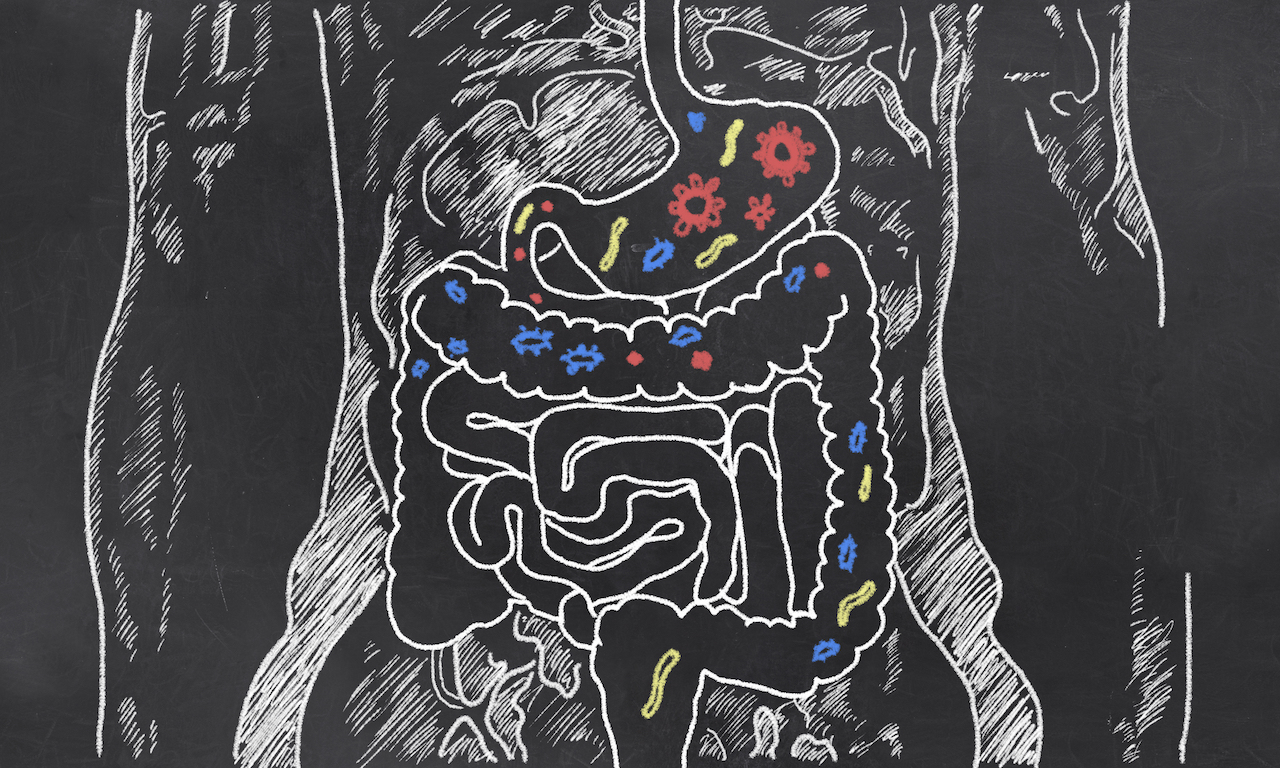Millions of neurons line the gut and release important chemical messengers that allow the gut to keep in close contact with the brain, and influence our moods and emotions. This is one reason whey the digestive system is also known as the second brain.
Digestion is critical as it breaks food into nutrients that the body uses for energy, growth, and cell repair.
Mind and body connection
There’s more to your digestive system than occasional aches and pains that come with heartburn, bloating, constipation and diarrhoea. Your gut is central to your overall health. It’s connected to everything that happens in your body.
It’s important to balance this system because what happens in the gastrointestinal system can affect your physical health and emotional state.
Understand how your gut works
Your digestive system absorbs food, breaks it down into macronutrients (proteins, fats, and carbohydrates) and micronutrients (vitamins and minerals), and then absorbs them. The rest of your body uses them as fuel and raw materials to build tissues.
Gut bacteria alter the way you store fat, how you balance levels of glucose in your blood, and how you respond to hormones that make you feel hungry. The wrong internal mix can cause obesity and other health issues.
Digestion stages
- The mouth and teeth. The digestive process starts with your mouth and teeth breaking food into small pieces and mixing with saliva.
- The oesophagus. Chewed food travels through your oesophagus, a simple tube that connects the pharynx (throat) with the stomach.
- The stomach. Your stomach slowly empties its contents into the small intestine, which is the longest portion of the digestive tract. It usually takes about four hours for a moderate-sized meal to empty out from the stomach.
- The small intestine. The major food groups, protein, fat and carbohydrates are broken down here into amino acids, sugars and fatty acids, which are then absorbed into the bloodstream. It can take between two to four hours for a meal to be processed.
- The large intestine. The major function of the large intestine is to absorb water from the remaining indigestible food matter and get rid of the useless waste material from the body.
- The pancreas. This is a digestive gland that secretes an alkaline juice that contains powerful enzymes that break down protein, fat and carbohydrates. It’s also the source of insulin.
- The liver receives blood from the gut, filters, removes toxins, metabolises medications, stores nutrients and creates proteins. It also creates bile.
- The gallbladder concentrates and stores bile produced by the liver and helps with digestion of fats in the gut.
Now that you know how this powerful machine works, what are the main culprits that affect your gut health?
- Refined sugars.
- Artificial sweeteners.
- Processed foods.
- Excessive alcohol.
Avoid these and your stomach will thank you because what you eat determines which bacteria thrive in your gut.
Common gut problems include:
- Food allergies and intolerances.
- Skin issues like acne, rosacea, and eczema.
- Digestive issues like bloating, gas, diarrhoea, and IBS.
- Hormonal imbalances, chronic fatigue, fibromyalgia, depression, anxiety, and attention deficit disorder (ADD).
Restore good bacteria
Up your probiotics; they’re good for your gut.
- Garlic boosts your healthy bacteria. It also prevents bacteria from growing and diseases from spreading.
- Onions contain prebiotics which strengthen your gut, break down fat and breed good bacteria.
- Yoghurt is a filling snack that helps keep out harmful microorganisms that may cause intestinal infections.
- Kefir, which is similar to yoghurt, is a trusted source of probiotics and is mainly used to make a fermented milk drink. It’s a better source of probiotics than yoghurt and helps with digestive problems to protect your gut from infections.
Prebiotics vs. Probiotics?
Probiotics are found in fermented foods and some supplements. Prebiotics are found in certain fruits, vegetables, and wholegrains. The most dominant prebiotic is fibre.
- Fibre is the most important ingredient for gut health. Soluble fibre helps lower blood glucose levels and LDL cholesterol (bad cholesterol). Find fibre in oats, legumes, some fruits and veggies.
- Insoluble fibre has a cleansing effect on your digestive system. You can find it in wholegrains, kidney beans, fruit and veggies.
- Bananas act as peacemakers and are gentle on your stomach. They have high levels of potassium and magnesium. They can relieve stomach ulcers by coating the lining of the stomach against acids.
- Apples contain insoluble fibre. They have gut healing properties thanks to pectin, found in the skin. It can help maintain and repair the intestinal mucosa lining.
References:
- https://www.gaiam.com/blogs/discover/how-to-fix-your-gut-7-steps-to-intestinal-health
- http://loveyourgut.com/what-does-the-gut-do/the-digestive-system/
- https://www.bbcgoodfood.com/howto/guide/how-does-diet-affect-gut-health
- https://foodrevolution.org/blog/best-foods-for-gut-health/
- https://www.bbcgoodfood.com/howto/guide/how-does-diet-affect-gut-health

